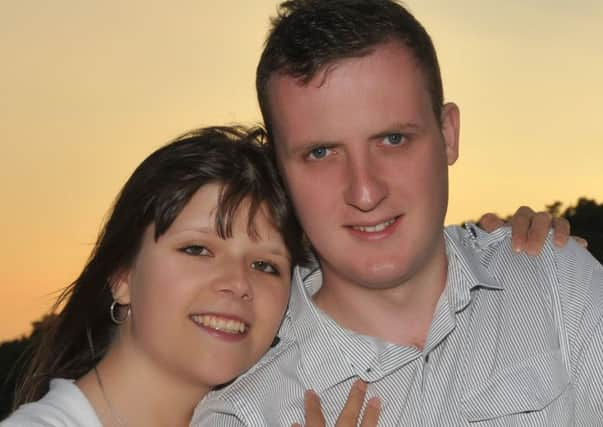Emma's rare diagnosis after 16 years gives hope to families


Emma Beal was told by doctors that she has a progressive Mitochondrial Disorder called Combined Oxidative Phosphorylation Deficiency 16 - a condition so rare that it has no common name and only two other cases of this form of disorder are known in the world in siblings in Finland.
In late 2013 the London hospital offered the family a chance to go on the 100,000 Genome Project which is currently the largest genetic research programme in the world.
Advertisement
Hide AdAdvertisement
Hide AdAt the end of 2015, Emma was told that there was news that her London doctors wanted to deliver to her in person.
“Not having a diagnosis for all that time was like being in limbo but after such a long time not knowing, we’d kind of got used to it,” she said. “So I was quite apprehensive to find out what I might have. It was a bit of a science lesson, but luckily my degree is in Animal Science.
“The very best news for me is that I can have a family if I want without the worry of passing it on, because the chances are practically non-existent.
“We can also now hope that medical advances might produce more treatments and even a cure, now we know what we’re up against. It was very clear that my doctors themselves were really excited to be able to start giving more people a diagnosis. They said that without genetic screening it was extremely unlikely that I’d have ever had a diagnosis.”
Advertisement
Hide AdAdvertisement
Hide AdThe 27-year-old became ill in May 2010 while sitting her university final exams.
Tests at Calderdale Royal hospital discovered that she had a serious heart condition called hypertrophic cardiomyopathy and also ‘leukodystrophy’ - an abnormal white matter on her brain affecting her nervous system.
Doctors suspected that there was likely to be an under laying condition causing both issues and all the accompanying symptoms, but didn’t know what it was.
In 2012 she was referred to the National Hospital for Neurology and Neurosurgery in London. Throughout this time severe and almost constant headaches, as well as other symptoms such as fatigue, tremors, ataxia, balance problems and osteoporosis.
Advertisement
Hide AdAdvertisement
Hide AdFurther tests carried out in London indicated that Emma most likely had a Mitochondrial Disease, but that it was a rare one that couldn’t be recognised or confirmed.
“Those first couple of years were a particularly scary time for all the family,” said Emma’s mum Christine Beal, a Calderdale councillor for Rastrick.
“Nobody wants to have an illness. But it’s a huge relief to at least know what we’re dealing with, so we can continue finding ways to improve Emma’s symptons.
“I’m aware that David Cameron had taken a real interest in this project having had personal experience of a devastating rare ilness with his son Ivan who sadly died aged six of a very rare form of epilepsy.
Advertisement
Hide AdAdvertisement
Hide Ad“This work will make such a difference not only to individual patients like Emma, but to their families and to countless people in the future because of the medical advances it will bring.”
Dad Peter added: “We couldn’t be more proud of the way Emma copes with her condition. She is incredibly positive and a real inspiration. Also, we’re lucky to have received brilliant support from her partner Paul, and our family and friends.”
How the 100,000 Genomes project works and how Emma’s rare condition was diagnosed
The 100,000 Genome Project is currently the largest genetic research programme in the world run by Genomics England.
Advertisement
Hide AdAdvertisement
Hide AdIts aim is to unlock the power of DNA data by screening around 70,000 NHS patients with cancer and rare diseases, along with their families by the end of 2017.
The family were told that because Emma’s condition was so rare, trying to find the faulty gene was a bit like looking for a ‘needle in a haystack’.
The gene causing the problem was a recessive gene called MRPL44. It causes a progressive Mitochondrial Disorder called Combined Oxidative Phosphorylation Deficiency 16, or COXPD-16 for short. Recessive genes are usually passed on one from each parent but in Emma’s case she received duplicate sets of chromosomes from her mum, and unfortunately they carried this fault.
Apparently receiving two sets of chromosomes from one parent is a very rare occurrence in itself.
Only two other cases of this form of Mitochondrial Disorder are known in the world in siblings in Finland, with Emma’s the only one known to have happened in this unusual way.